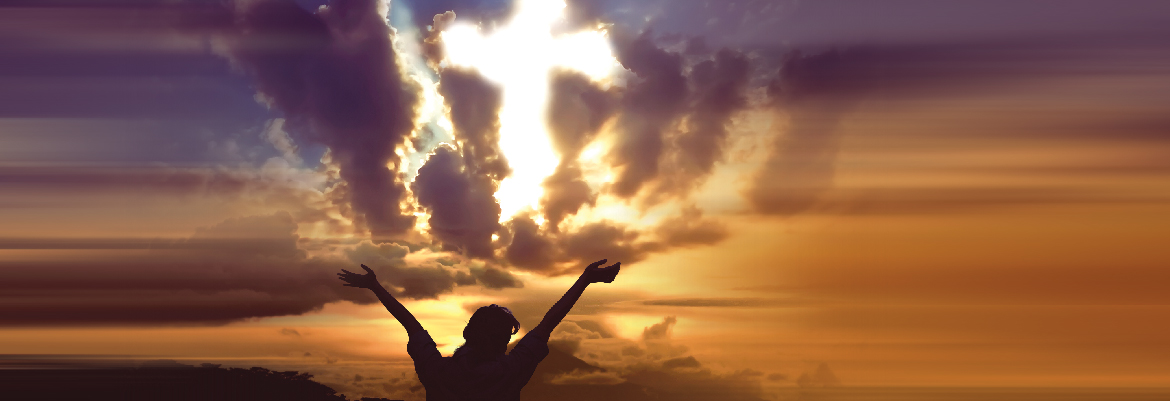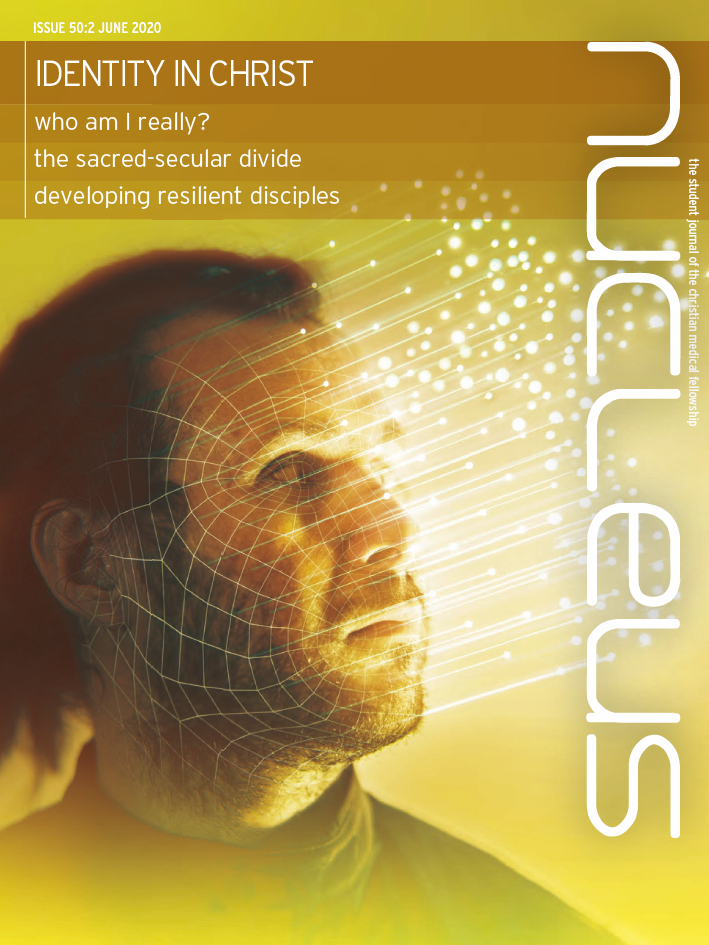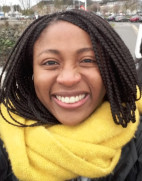Tobi Adeagbo is a junior doctor in Wessex and a CMF Board Member
What does it mean to be true to myself? How can I even know what my true self is? Am I best identified as a collection of my personal likes and dislikes or is it more about belonging to a specific group? What about gender, ethnicity, sexuality, or nationality? How do these factors combine to give the most complete description of who I am? I have wrestled with this question over the years and still do now; it is an issue that we all face at some point. Though it can be tempting to look solely within to find our 'authentic self', a part of us always understands that this will never completely do. We are so intricately connected with so much that is outside of us that it is impossible for these external factors not to influence our sense of who we are.
As a child, I based my sense of identity around my family. As I grew older, other things like hobbies, friends, nationality, and gender took precedence. However, it didn't take me long to see the problem with this. In a matter of years, I lost my place as the middle child and became two in a line-up of seven. I drifted away from my friends in secondary school and made new friends elsewhere. I left Nigeria and moved to the UK and suddenly realised that, though I am Nigerian, so much of what I think and believe has been influenced by my time in the UK.
What about medicine, my career? I have moved from wanting to be a paediatrician to considering geriatrics and am now working in acute medicine. How can I find security in my sense of self when all the things I use to construct it can change in the blink of an eye? Does this mean that I must start looking within myself for my sense of self even though introspection of that sort has given me more questions than answers?I think that the fundamental issue lies in the fact that we are created beings. Our very existence is the fruit of something else. I am not referring to parents or countries or circumstances - no, I mean something even more fundamental. I mean God.
At the beginning of time, God created humanity. He created us in his image. [1] Our complexity therefore makes sense because we reflect the complexity of the one who created us. It is impossible to know ourselves fully if we do not know where, or rather who, we come from. Our true identity comes from God because we are made in his image. True, this image is blurred and marred by our separation from him. Yet, there is no better guide than the one who knew us before we ever took a breath and continues to know us even after we take our final breath. [2] Our identity is not something illusive or flimsy like the things we tend to base it on, it is solid and stable like the one from whom it is truly derived. We know ourselves better as we know our God better. What we experience as we walk with God is a light shining ever more brightly to reveal and restore the beauty of what he has made - and that is how we find our true identity.
What does it mean to be true to myself? How can I even know what my true self is? Am I best identified as a collection of my personal likes and dislikes or is it more about belonging to a specific group? What about gender, ethnicity, sexuality, or nationality? How do these factors combine to give the most complete description of who I am? I have wrestled with this question over the years and still do now; it is an issue that we all face at some point. Though it can be tempting to look solely within to find our 'authentic self', a part of us always understands that this will never completely do. We are so intricately connected with so much that is outside of us that it is impossible for these external factors not to influence our sense of who we are.
As a child, I based my sense of identity around my family. As I grew older, other things like hobbies, friends, nationality, and gender took precedence. However, it didn't take me long to see the problem with this. In a matter of years, I lost my place as the middle child and became two in a line-up of seven. I drifted away from my friends in secondary school and made new friends elsewhere. I left Nigeria and moved to the UK and suddenly realised that, though I am Nigerian, so much of what I think and believe has been influenced by my time in the UK.
What about medicine, my career? I have moved from wanting to be a paediatrician to considering geriatrics and am now working in acute medicine. How can I find security in my sense of self when all the things I use to construct it can change in the blink of an eye? Does this mean that I must start looking within myself for my sense of self even though introspection of that sort has given me more questions than answers?I think that the fundamental issue lies in the fact that we are created beings. Our very existence is the fruit of something else. I am not referring to parents or countries or circumstances - no, I mean something even more fundamental. I mean God.
At the beginning of time, God created humanity. He created us in his image. [1] Our complexity therefore makes sense because we reflect the complexity of the one who created us. It is impossible to know ourselves fully if we do not know where, or rather who, we come from. Our true identity comes from God because we are made in his image. True, this image is blurred and marred by our separation from him. Yet, there is no better guide than the one who knew us before we ever took a breath and continues to know us even after we take our final breath. [2] Our identity is not something illusive or flimsy like the things we tend to base it on, it is solid and stable like the one from whom it is truly derived. We know ourselves better as we know our God better. What we experience as we walk with God is a light shining ever more brightly to reveal and restore the beauty of what he has made - and that is how we find our true identity.
































